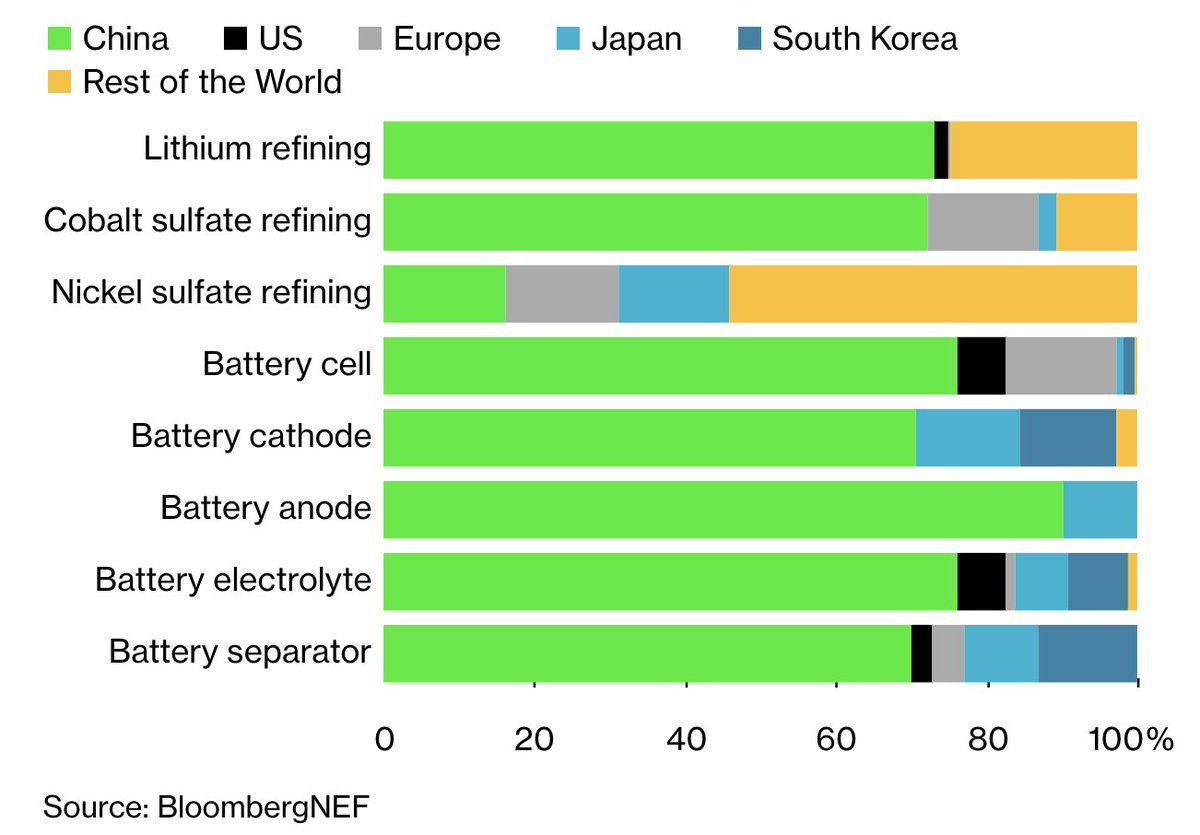Most Favoured Nation: No More Free Trade In Electric Vehicles
Rules of origin, timezones and lace
Welcome to the 90th edition of Most Favoured Nation. The full post is for paid subscribers only, but you can sign up for a free trial below.
From 2024, unless changes are made to the TCA, a 10% tariff will apply to most electric cars traded between the EU and UK.
As I have written before, electric vehicles tend to struggle a bit with free trade agreements (or at least European free trade agreements). This is because the rules of origin, which dictate whether a car is local enough to qualify for the preferential tariff rate, tend to be designed with petrol or diesel supply chains in mind.
For example, the EU-South Korea free trade agreement dictates that for a car to trade tariff-free, 55 per cent of its value must be locally originating. This threshold is not such a big deal for EU-produced petrol or diesel cars, given the depth of domestic supply chains and localised production.
For electric cars … much more tricky.
This is because Europe does not make many EV batteries. And the battery account for a large proportion of the value of any electric vehicle — estimates range from 20-50 per cent. So a foreign battery often means a car otherwise made in Europe is, for rules of origin purposes, a foreign car. Which means tariffs!
This is obviously not good from a “trying to decarbonise the transport sector” perspective. But, if you are trying to build up onshore battery production capacity, as the EU is, it also creates demand for locally sourced batteries.
In an attempt to square this circle and incentivise the onshoring of battery production into Europe while not discriminating against trade in electric vehicles, the EU and UK agreed to some bespoke rules of origin in the Trade and Cooperation Agreement.
Rather than penalising trade in electric vehicles from day one, the rules would be flexible to start with and gradually tighten over time before becoming really really really stringent: from 1 January 2027 not only must 55 per cent of the car be locally sourced but also the battery pack must originate in either the EU or UK.
The first tightening of these rules will be on 1 January 2024. This is bad because, well, so far, the onshoring effort has not worked. European car makers are still sourcing most of their batteries from Asia, mainly China (h/t Tobias Gehrke):
To get slightly more technical, the 2024 problem is not just the tightening of the allowable foreign content (60% of value to 55% of value), it is also because it will become considerably harder to classify UK/EU-produced batteries as UK/EU.
The new rule stipulates that for a battery pack to be local:
its production must have resulted in a change in tariff heading (e.g. parts with the customs classifications 123456, 789012 and 456789 are smushed together to create a new product with the classification of 999999) BUT the battery cannot contain non-originating active cathode material. (I’m not going to get into it here, but this is all made even more complicated by the fact that batteries and battery parts all sit under the same customs code); or
60 per cent of its value must be locally derived.
In practice, this means that for a battery to be considered a local battery (and count as local towards meeting the EV rules of origin threshold), it is not just enough to have a gigafactory or the like in the EU/UK … you also need to have produced the cells and chemicals that are used to make the battery in the EU/UK.1
To illustrate, you probably need to be doing everything from the red circle onward in either the EU or the UK. Currently, we are having a few discussions about the purple circle.
So what to do? The answer is actually fairly simple … the UK and EU should agree to extend the existing rules for another couple of years and return to the matter then … when perhaps there will be the onshore battery-making capacity to allow EVs to comply with the stricter rules of origin … maybe.
Keep reading with a 7-day free trial
Subscribe to Most Favoured Nation to keep reading this post and get 7 days of free access to the full post archives.






